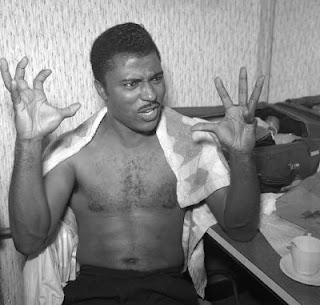I’ve been re-reading John Summers’ best novel, The Raging Summer (1972). And it’s wonderful – a book that gets better with every reading.
The setting is John’s childhood in a mining village in the South Wales valleys of the 1930s. It’s a place and a time so far removed from my own life that I can’t claim any knowledge of it, but those who did experience the world of which he wrote vouch for the truth of its depiction of time and place. And I can at least vouch for the truth of its depiction of humanity in all its everyday dreams and struggles.
Part of the genius lies in the dazzling virtuosity of the writing. It ranges from comedy to fury, from pen-portraits to anecdote, all delivered in a prose style that bears the hallmarks of the oral tradition of Welsh literature, with its repetitions and heaped adjectives that approach at times the rhythms of poetry.
In an ideal world, I’d put the whole thing online, but (a) I’m not sure about the legality at the moment, and (b) it’d take too long to scan and code it. Anyway, I very much hope we can get it republished in due course, and you’ll be able to read it all then.
For the time being, though, I’ve put a few extracts on the website I set up for John. These include: his memory of the great miner-poet
Idris Davies who inspired him to write the novel in the first place; a passage about
Edward VIII’s visit to the Valleys, which prompts bitter reflections on the relationship between London and Wales; a portrait of an archetypal preacher,
Williams Williams Tin-Chapel, that ends with a characteristically deflating joke; and a hilarious account of how the
Second World War came to town.
There’s also the beginning of the story of the
Rose of Tahiti, a chapter that could stand alone as one of the greatest short stories in 20th century literature. The extract doesn’t do anything like full justice to the totality, but it’s still beautifully and brilliantly observed.
And that’s the problem, of course, with just having extracts. I’ve tried to encompass some of the sheer diversity of subject and tone, but a mere five thousand words or so simply can’t do it. The sheer joy of a character like Dai Chavez, for example, needs to be experienced in real time as he pops up throughout the book, commenting on the action like a comedy Chorus, always optimistic, never changing.
‘When I looked at Dai Chavez,’ writes John at the end of the novel, remembering a recent encounter, ‘I realized that what I was looking at was a man who, through his life, was extremely happy. He had always had little and now he had little enough and still he was happy. He probably didn’t even know how happy he was. The happiest kind of happiness.’
And, while I’m quoting from the book, this is John on the literary ambition that took him out into the world, to make his name and to change the lives of many thousands of people, including mine:
‘To write books. Just words. So that afterwards the reader would feel, yes, that it had all happened to him and to her. Then each book would no longer belong to me but belong to them too and they would, with even more than my own small determination, fight for it and protect it because it was for ever theirs now.’
He was, and remains, an inspiration.







